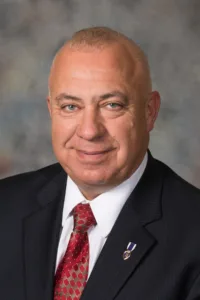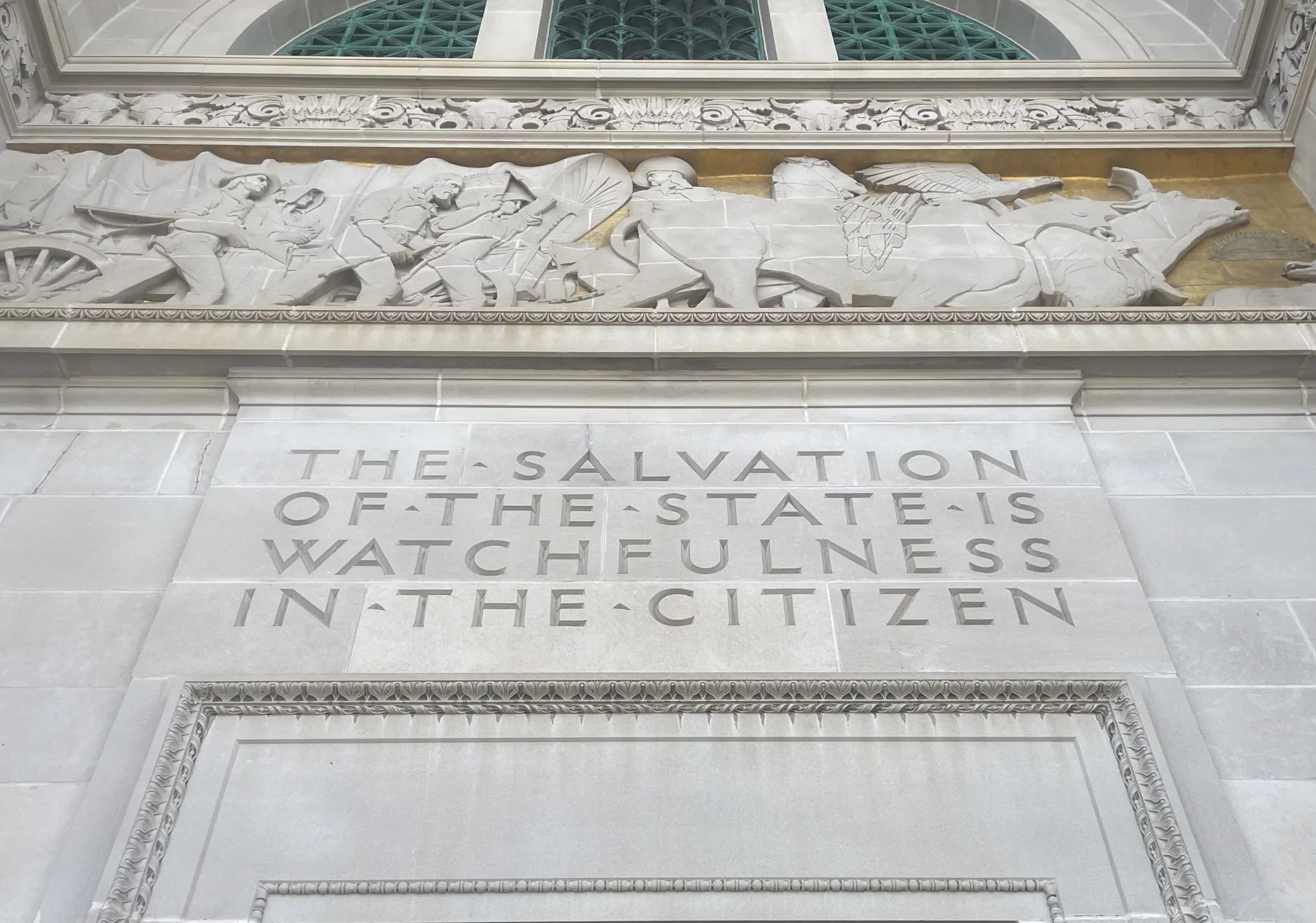A new law going on the books will curb the fees Nebraska agencies can impose on residents who request public records.
The legislation comes on the heels of a ruling by the state’s top court earlier this month that said agencies can charge fees for the cost of rank-and-file employees to review information requested by members of the public.
Gov. Jim Pillen, a Republican, signed Legislative Bill 43 on Wednesday, less than a week after lawmakers passed the 26-page proposal.
The bill enacts an array of changes: clauses that aim to protect religious freedom, limit regulation of charities and guarantee public comment at meetings. And it amends a section of public records law at the heart of a legal battle between Flatwater Free Press’ parent organization and the state Department of Environment and Energy.
In 2022, the Nebraska Journalism Trust sued the department after it said the nonprofit would have to pay $44,000 for state employees to review requested emails about nitrate contamination of groundwater.
State law already prohibits public agencies from charging fees for a lawyer to review requested records, but the recent Nebraska Supreme Court ruling in favor of NDEE left the door open for agencies to impose fees for the cost of non-attorney employees to review records in search of legal reasons to withhold them.
That part of the law, which takes effect three months after the Legislature adjourns, will ban agencies from charging those fees to Nebraska residents and members of the news media. Nonresidents still can be charged for the cost of attorneys and other employees to review requested records.
Sen. Danielle Conrad introduced the policy change, initially, as part of a separate bill.
The Lincoln Democrat said she did not bring the bill in response to the court case, but she noted it’s a “high-profile example” of an issue broadly experienced by individuals and groups across Nebraska.

“It was … very gratifying to be able to work with other senators, whose constituents were facing the same sort of frustrations, and finally find a way to prioritize measures to modernize and update our strong public meetings and public records laws,” Conrad said.
Sen. Tom Brewer, a Republican from Gordon and chair of the Government, Military and Veterans Affairs Committee, said he was on board with Conrad’s bill from the start.
“I listened to her, and I thought that she made great points, and that’s why I moved the bill forward in the committee hearings early – because I wanted to get it out with our first committee package and get it rolling,” he said.
Previous attempts to strengthen public records and open meetings laws had “languished,” Conrad said. She credited Brewer’s package “focused on individual rights” for appealing to a wide range of senators.

Part of his motivation, Brewer said, was sending a message: “There are agencies who use that as a tool to prevent information from being shared, because they know if they put a high enough dollar value to it, people can’t afford it. And I think that’s so wrong,” Brewer said.
Spike Eickholt, a Lincoln-based lawyer and lobbyist who supported Conrad’s effort, said the bill will help provide affordable access to records for all Nebraskans – especially those without an institution behind them.
“Some advocacy groups and media organizations might be able to negotiate or pay for the cost of agency staff to ‘review’ public records before release, but average citizens simply cannot,” Eickholt said in an email.
Daniel Gutman, an attorney who represents the Nebraska Journalism Trust, hailed the bill’s passage as a “really significant victory” for transparency advocates and applauded the incredible speed of the Legislature’s action after the Supreme Court decision.
Gutman noted that it’s too soon to say how the Nebraska Journalism Trust will proceed in its lawsuit against NDEE, which is still active since the Supreme Court sent it back down to a lower court to resolve small technical matters.
Spokespeople for Pillen and the Nebraska Attorney General’s Office, which represented NDEE in the lawsuit, did not respond to requests for comment.
Local transparency advocates may have won a small battle in passing LB 43, but the larger war over accessible public records won’t let up in Nebraska, said David Cuillier, director of the Joseph L. Brechner Freedom of Information Project at the University of Florida.
Even with the changes, state law will permit government agencies to impose fees for the cost of identifying and copying public records. Agencies will continue charging hefty prices for public information until the state eliminates all avenues for them to do so, Cuillier said.
After the bill passed, Conrad proposed an interim study related to public records, which includes looking into law changes around access to police body-worn camera footage and whether any more changes are needed “in response to the Supreme Court’s opinion” in the Nebraska Journalism Trust’s case.
“It’s always a good day for government transparency and accountability and perhaps the sun is shining a bit brighter on our sunshine laws after the passage of 43,” she said.





1 Comment
So, now taxpayers will be footing the bill to pay state employees to fulfill endless, harassing, and costly FOIA requests from “news” organizations like the FFP? The incentive for focused FOIA requests–and thus less costly– is not longer.
And we’re stuck with the bill!
No thanks.